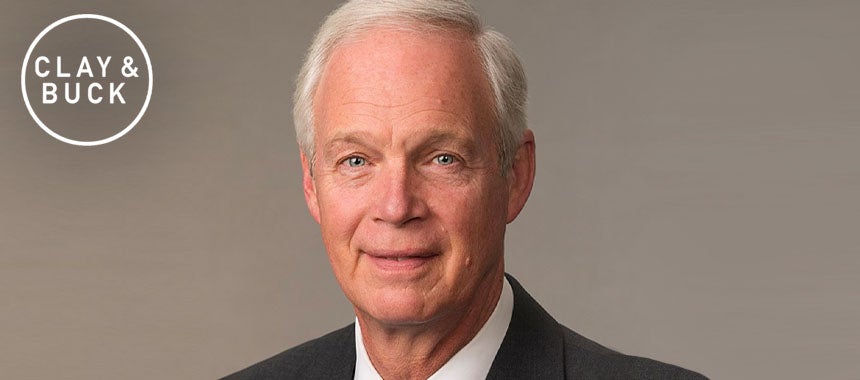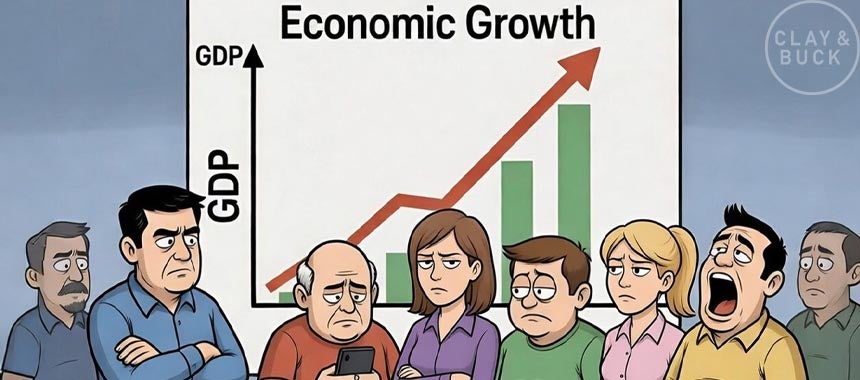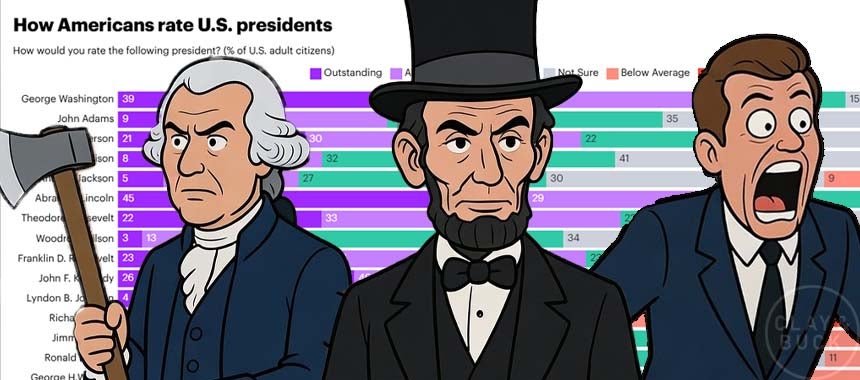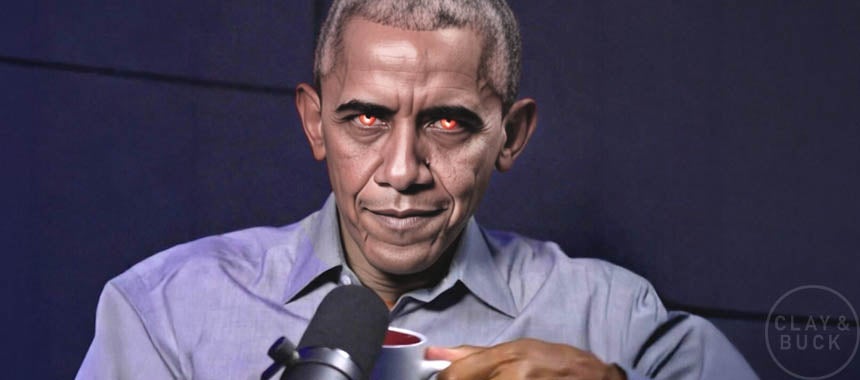Genius Meteorologist Joe Bastardi Issues Multiple Warnings on Hurricane Ian
28 Sep 2022
CLAY: We want to bring in now Joe Bastardi who has been covering storms like these for a very long time. He’s got a book: Weaponization of Weather in the Phony Climate War. Most recently, he is the chief forecaster at WeatherBELL Analytics, LLC.
Joe, thanks — I know it’s been a crazy day for you certainly as we track this storm. What should our listeners both in Florida and beyond know about the latest on this storm?
BASTARDI: Well, first of all, this is what the Good Lord above made me to do, and we actually — I actually posted a blog — it got up on Wednesday but it was written Monday on CFACT. I don’t know if you guys… I post quite often there on CFACT trying to get people ahead of the game on the weather.
 And the title of the blog on Wednesday was “Attention Governor DeSantis.” And part of the reason I wrote that because we were, even then, before this was even developing, we were saying, telling our clients, this is coming for Florida, it’s gonna be a major impact storm.
And the title of the blog on Wednesday was “Attention Governor DeSantis.” And part of the reason I wrote that because we were, even then, before this was even developing, we were saying, telling our clients, this is coming for Florida, it’s gonna be a major impact storm.
And you wonder, “Well, how the heck you saying that?” It’s because of old time pattern recognition. I’m 67 years old, my dad was a meteorologist, he taught me that you should have a functional working knowledge of what the atmosphere is doing before you go rely on computer models.
So, we got away ahead of the storm. And one of the biggest things about this storm I’m emphasizing to everyone is while Governor DeSantis has done a unbelievable job mobilizing this army, the army needs to be fed and the supply chain situation in the country for people recovering here is not good.
It’s not like it was three or four years ago. While we’ve got the electric crews and all these people staging and they’re in there, when you start considering the logistics of “What about windows blown out?” and “What about the idea that this is not just done here even though it will be a lesser intense storm?”
This is gonna be a major, perhaps devastating, impactful storm from Jacksonville up toward Charleston as far as the coastal communities go. And it won’t be the amount of wind. The wind will probably be 75, 80 miles an hour.
But the fact that in those areas — and I want to talk about those areas for people, because everybody’s focused on Fort Myers. We still are focusing yesterday, you know, Fort Myers, Naples, in there.
We start focusing yesterday further north because there’s a second battle coming here. It’s already starting because, guys, this big cool high in the Northeast, this storm, northeasterly winds already piling water up from Jacksonville into Savannah and Charleston.
 The tides are coming up, and then this is gonna come off the coast probably near Cape Canaveral tomorrow afternoon, tomorrow night, and then come north between Savannah and Charleston, I think, later Friday. So, you’ll have the water that’s two, three, four feet above normal, and then the storm surge coming up.
The tides are coming up, and then this is gonna come off the coast probably near Cape Canaveral tomorrow afternoon, tomorrow night, and then come north between Savannah and Charleston, I think, later Friday. So, you’ll have the water that’s two, three, four feet above normal, and then the storm surge coming up.
And so, we want to be concerned about that area. This is a done deal as far as these areas are gonna be devastated. And you know, people that I talk to a week ago, some of my friends down there saying “You gotta get out of there and stay out of there.”
And the reason why is the recovery — it may not be, you know, three, four, five days. You know, Charley it was four days, but Charley was a much smaller storm as far as stature goes, as far as the size. And it ran through Florida.
This thing is gonna crawl five to 10 miles an hour, it’s probably gonna break non-thunderstorm wind speed records. You know, you get a thunderstorm, you get these, you know, big, strong wind gusts. But, you know, places like Orlando and even up the I-4 corridor, all these places are going to probably have wind gusts over hurricane force and not just for five, 10 minutes.
They’ll be 12, 18 hours where the wind will be gusting. It won’t always be over hurricane force, but it’s a very, very slow-moving system. Those of you who have been in a hurricane especially on the East Coast. we’ve had no land-falling hurricanes in Long Island and New England — Sandy went to the south of course in New Jersey — but we’ve had no land-falling hurricanes in 32 years in the Northeast.
And for those of you remember hurricanes because they used to hit once every seven years. Hurricanes were much more frequent from the thirties on into the early nineties. They move fast. Even in Florida they usually are moving pretty fast.
Euro brings it back to cat 1 with 90 plus gusts in coastal waters. Landfall Savannah to Charleston. High impact storm for these people. Expect surge to 9 feet ( due to piling up by fetch adding) Nightmare threat Jacksonville area. St Johns river with 1-2 feet rain meets surge pic.twitter.com/335gTgf6uM
— Joe Bastardi (@BigJoeBastardi) September 28, 2022
When you get something that moves slow like Harvey did — Harvey got trapped by a cold upper trough, the same way the upper trough of low pressure is capturing this storm and making it move slower. When they move slow like this, it’s a relentless pounding.
It’s not only — it’s a psychological thing. It’s like being in a trench and you can’t come out for a long time. So, we were trying to get people out of there even if they were in areas where, “Well, my building can take 200-mile-an-hour winds.”
That’s fine. But what if you’re still without water seven, eight days behind? And that is a product of what has happened with the supply chain in this country.
CLAY: Okay, Joe. So, thanks for coming on. Joe Bastardi. You said you’ve been using and using your knowledge, you’re 67 years old. What does this storm remind you of in terms of a hurricane that other people out there listening to us right now might have experienced? Where is the analogy that you would draw as to what it may be like when it is finally here and finished?
My big concern is that parts of that 3-6 foot area Fla to SC could be up to 9 feet pic.twitter.com/X9m1NvYxbV
— Joe Bastardi (@BigJoeBastardi) September 28, 2022
BASTARDI: Well, it’s a slower moving version of Donna in 1960, right? Florida hasn’t been hit — guys, this is only the sixth time since 1965 a major hurricane has crossed the south coast of Florida. And the 50 years before that there were 16 hurricanes.
I can reference the ’47 hurricane, I can reference the Cape Sable hurricane, which came across near Cape Sable, went out then turned around and hit Savannah, right? I can reference those, but who remembers those?
And that’s one of the problems that you see the reason why people get after me in this climate change thing is because they’re relying on the fact that nobody knows these things. So, when you know and understand that, you can communicate with people.
So, there simply hasn’t been a storm like this since we were back in the 1940s when Florida looked like, you know, railroad tracks crossing it. Now, we had Andrew of course, and we had Charley. But Charley was a small storm that moved quite fast, all right?
This one’s gonna take its time, and in addition, because it’s gonna take its time and get back over the Atlantic….and this is something my company has been —
For those of you watching what’s going on, on Twitter. Some people that follow me, you’ve been watching our track and then the hurricane center goes to our track, and this morning we made a big deal about intensity, and I see their latest bulletin is it’s back up to 65 miles an hour again off the Florida coast when it goes into South Carolina there too.
NHC now has this up to 65mph as per https://t.co/kvqB5rsu2Z idea on the threat of the higher impact up the coast. track has moved from yesterday am comparison to our eastward track https://t.co/HBKNq1j6Md pic.twitter.com/hAXvwlC1Ug
— Joe Bastardi (@BigJoeBastardi) September 28, 2022
So, as far as the reference goes, the slow movement of this storm is very unusual. It’s not climate change because it’s not because it’s big — it’s moving slow because a trough of low pressure has captured it in the upper levels of the atmosphere.
BUCK: Joe, just to be clear — and we got Joe Bastardi with us now, who’s sharing his expertise in exactly this, hurricanes and what’s going on right now in Florida — it sounds like you’re saying this is the most destructive force hurricane that we have seen in a hundred years. Is that —
BASTARDI: The totality of it, okay? See, there are many, many different problems here, guys, okay? Think about this. The St. John’s River, all right. It flows north. Doesn’t flow south like most rivers. You say “So, what?” right?
Well, if you get two feet of rain in the river basin area and, meanwhile, Northeast winds are jamming a coastal surge into the inlet where the St. John’s River empties into, what’s going to happen when the coastal surge meets the flood surge coming, in this case, downstream, which is north, right?
So, you have one set of circumstances after another here, but it was all — you could see it coming. That’s what really bothers me about this whole thing. The pattern recognition said…you know we had Earl, then we had Fiona develop in a certain place, and you could see.
Western Caribbean, here it comes, you could see it down the road from 10, 15 days away, as plain as the nose on my Italian face. And the reason we knew that is, previous storms had developed in there, okay. You got Wilma that developed in there.
For instance, Charley developed this there, it had similar patterns but the difference now is in the endgame of the storm and the logistics of trying to clean up after the storm. And it’s moving up the I-4 corridor.
Charley went up the I-4 corridor, but it was a very small storm weakened dramatically and it was in and out in six to 12 hours. This is coming up to Orlando, it’s going to Cape Kennedy and those areas, and then getting out to the water and coming back north.

Each storm — you know, when I bring up storms, each one, it’s like a family, going to a family reunion. Every member of the family is not the same so you have to deal with the unique situation that the storm is in. The genesis of this was very easy to see. Where it’s going to go. And say, well, it was easy to see. Just go look at what was said by my company, okay, and from how far out, right?
CLAY: So, Joe you’re saying obviously it’s going to be really, really bad to the west coast of Florida and that’s where people are focusing on right now. But you’re telling us as this storm slowly moves across Florida, that places like Orlando and then up on the Atlantic coach, the Jacksonvilles, the Savannahs, the Charlestons, they’re gonna, in your mind also deal with some substantial damage from this storm.
In other words, it’s not just going straight across Florida back out into the Atlantic. It’s gonna sweep up around Atlantic coast to the south and hit a bunch of these places too.
BASTARDI: I would say it’s gonna move north — I think Orlando will probably have their highest wind gust on record from a tropical cyclone. I don’t think Jacksonville beats what happened in 1964, like Tampa, Jacksonville doesn’t get hit by major hurricanes because of the configuration of the coastline.
Jacksonville got hit one time, 1964. Dora is their benchmark storm. The benchmark storm in Savannah is 1947. I don’t think it’s gonna beat that. I don’t think it’s gonna beat Hugo in Charleston or Gracie in Charleston.
But it is going to be a top 10 impact event for those areas also. Obviously, for this area of Florida it’s probably gonna be ranked as number one, although if Donna came today to that area, right? People don’t remember, 1960 with Donna was every bit as bad as this, right?
But it moved right through, then it hit North Carolina, then it went up and hit New England, and every state from Maine to Florida had hurricane force winds. In this particular case, this will be confined to the Southeast.

I don’t really think this gets much further north in the mid-Atlantic states, and when it does, it will just be a regular nor’easter. Won’t be a big problem. But the second part of the storm is going to be a significant, major event later Thursday into Saturday morning.
BUCK: Joe Bastardi, chief forecaster as WeatherBELL Analytics. His book is The Weaponization of Weather in the Phony Climate War. Joe, we know you’re super busy. Thank you for sharing your expertise with this. We appreciate you being on.
BASTARDI: Yeah, thanks for having me. I’ve always wanted to be on with you guys. Always been a big fan. God bless you. Enjoy the weather. It’s the only weather you got.
CLAY: We might have to talk to you later again this week —
BUCK: He’s got expertise in weather and great radio. There you go.
CLAY: He’s a genius, clearly. But, I mean, real the historical knowledge there, incredible discussion. We may have to talk to him later this week or early next week about the lasting impact here. But again, right now Ian coming ashore into Florida and it sounds like a lot of you listening in very many different communities throughout Florida and also Georgia and South Carolina are gonna be substantially impacted by Ian as well.
Recent Stories

VIP Video: Newsom Compares ICE to Nazis in GERMANY
The Democrats always have nothing but comparing their opponents to Nazis.

Senator Ron Johnson Talks Fiery ICE Hearing, the SAVE Act and Much More
The Wisconsin senator tells us what's behind disastrous Democrat policies the GOP is trying to fix.

More Great Economic Data Comes In, But Will Voters Feel It by November?
Will Americans feel this in their own lives in time for the midterms?







